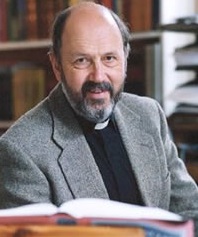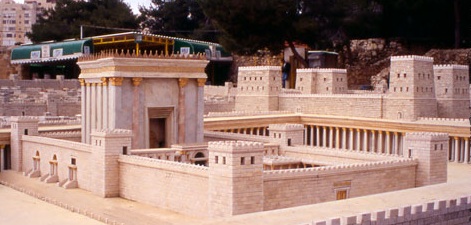We are moving from an age of belief to an age of the Spirit. We are open to the Spirit and pray for the work and power of the Spirit.

An Age of the Spirit doesn’t mean laissez faire anything goes spirituality. Nor does it mean Charismatic Christianity with speaking in tongues, prayer languages, prophecy, and ecstatic worship (although it may include all of these – and will include these for some). But it does mean a step away from modern rationalist materialism and proposition centered faith. Even more importantly, it means breaking free of our view that body and soul, flesh and spirit are separate and separable entities – we need a fully embodied Christianity focused on God and on His work, His presence, and His mission; isn’t this, after all, what true religion and for that matter biblical Christianity is?
Today I would like to put up an excerpt from Tom Wright – from a lecture that he gave at Calvin College in January of 2007 – on Space, Time, and Sacraments. (You can download both lectures and the q&a sessions from the link, his homily on Luke 24 is also well worth listening to.) The excerpt I would like to consider is 45 minutes into the second lecture, Sacraments and New Creation and runs about 4 minutes.
As you read (or listen to) the excerpt I would like to focus on the following question:
What is the significance of sacrament, particularly the Lord’s Supper, in our worship and our faith? Do we need the sacramental life of the church as part of our mission to follow God and participate in His mission?
Sacraments and New Creation N. T. Wright, Jan 6, 2007 45 minutes into the lecture (from ca. 45 minutes to ca. 49 minutes).
And with that we get, through this Eucharistic theology of new creation, a rejection of the false antithesis between spirituality and action for God’s kingdom in the world. Again and again, our categories as Christians naturally fall into those two, because that’s the way we were brought up, it’s the way our churches have lived.
I suspect that those of you in the reformed tradition have long since worked out good and sophisticated ways of bridging that gap. And are saying no, this is all part of the same thing because we are about declaring God’s kingdom in and for the world, which is anticipating in the present the new creation which will result in the future.
This theology of the Eucharist, which I am offering to you today, or sketching out with you today, therefore is extremely closely conjoined with a holistic view of mission. Of the mission of God in the world, which is of course all about the challenge to you and you and you and you to repent, to believe, to accept Jesus, to know him for yourself, to rejoice in His salvation, in and through your whole being. But also simultaneously and for the same reasons, the challenge for you to become agents of new creation, where there is hunger, where there is poverty, where there is injustice, where there is danger anywhere in the world.
And, as I said before, this is because God’s work in the world is never merely pragmatic. It isn’t just we can organize a program to go and do this. If you think you can do God’s work like that read the lives of people like Wilberforce and think again. You can’t. You need prayer, you need the sacraments, you need that patient faithfulness, because we are not wrestling against flesh and blood, but against principalities and powers and the world rulers of this present darkness.
Read some of the great Christian biographies and see how they did it. Read about Desmond Tutu. Who would have thought forty years ago that at the start of the 21st century there would be a black archbishop of Cape Town chairing a commission for truth and reconciliation listening to white thugs and black thugs confess their sin? Who would have thought that? But God had other ideas, because that black archbishop used to spend three or four hours on his knees every morning, day after day and week after week, and get other to do the same, and was living the life of the sacramental life of the church and claiming the victory of Jesus over the principalities and powers.
You can’t do it by just a little bit more politicizing, social techniques. You can only do it through being energized in the sacramental and prayerful life of the church, whatever the “it” is that you have to do.
I posted a few weeks ago on Scot’s book on Fasting. The focus of that post, and Scot’s book (Fasting), is the importance of a fully embodied faith. Fasting, then, is a natural response to life’s grievous sacred moments. We simply cannot separate body and soul. Wright’s point in this excerpt is along the same lines. A spiritual battle demands bodily response and preparation, on our knees before God. Fasting, prayer, and participation in the sacramental and ritual life of the church are integral components to the mix. We will not change the world through a pragmatic search for justice. God can use us, through the power of the Spirit, to change the world in small and cumulative ways, but only if we are on our knees and involved in His mission in a fully embodied fashion. I don’t think that it will happen without fellowship, worship, prayer, repentance, sacrament, church.
What do you think of Wright’s sketch of the importance of the sacramental life of the church? Do you agree that Spirit-led faith, justice, and mission are conjoined with an embodied faith and the sacramental life of the church?
If you wish to contact me directly you may do so at rjs4mail [at] att.net

